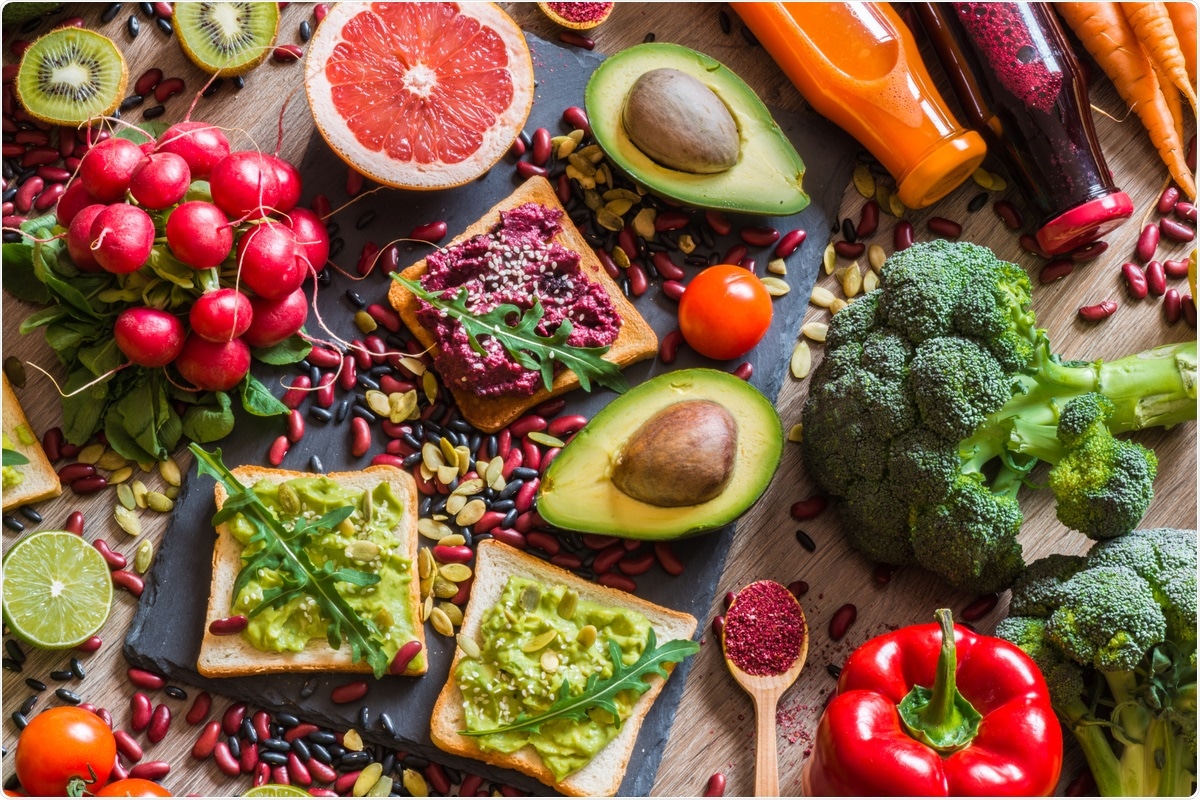Plant-based and pescatarian diets reduced the risk of severe COVID-19 infection by 73% and 59%, respectively.
Using data from online surveys across 6 different countries, scientists have shown that diet choice can affect the severity of coronavirus disease 2019 (COVID-19).
The effect of diet choice on infection severity
Observational evidence has previously suggested that diet may affect the severity of symptoms and the duration of COVID-19, but there is little clinical evidence to support such observations.
After further exploring this potential factor of influence, researchers have published new findings in the online journal BMJ Nutrition Prevention & Health indicating that diet composition does affect SARS-CoV-2 infection characteristics.
Scientists drew on the survey responses from 2,884 frontline doctors and nurses with extensive exposure to SARS-CoV-2, the virus responsible for COVID-19, working in France, Germany, Italy, Spain, the UK and the US. The survey targeted specific frontline healthcare workers through the global network of healthcare professionals who organized the survey, and collected data between July and September 2020 to examine the respondents’ dietary patterns.
The team’s questions were based on a 47-item food frequency questionnaire over the previous year and the severity of any SARS-CoV-2 infections they had had, using objective criteria. Further information was also collected on potentially confounding factors such as personal background, medical history, medication use, and lifestyle.
From all the responses collected, researchers then divided responses into categories; plant-based (higher in vegetables, legumes, and nuts, and lower in poultry and red and processed meats) or pescatarian/plant-based (as above, but with added shellfish/seafood); or low carb-high protein diets.
Overall, respondents who said they consumed plant-based diets or plant-based/pescatarian diets had, respectively, 73% and 59% lower odds of moderate to severe COVID-19 compared with those who didn’t have these dietary patterns.
Further factors affecting infection outcome
Following such key findings, the researchers also found that, compared with those who said they ate a plant-based diet, those who said they ate a low carb-high protein diet had nearly 4 times the odds of moderate to severe COVID-19.
Such results were maintained when correcting for weight (BMI) and co-existing medical conditions, demonstrating the extent of dietary influence on infection severity.
Interestingly, no association was observed between any type of diet and the risk of contracting COVID-19 or the length of the subsequent illness. This provides further evidence to the sole driver of differences in diet, but also suggests that diet may not affect immune barriers but affected the later immune response to improve recovery and resistance.
Extensive limitations for further studies to address
Despite such notable findings, the study remains observational in nature and does not investigate the cause and effect of diet differences. This could be further investigated with clinical data following case by case across infections.
The data collected also showed certain limitations as it was based on individual recall, rather than on objective assessments, and the exact definitions of dietary patterns may vary by country. Such regional differences require more specific definitions, particularly addressing such regional differences.
Additionally, men outnumbered women in the study, so findings may be less applicable to women, revealing that patterns of results may remain uncertain.
The trends in this study are limited by study size (small numbers with a confirmed positive test) and design(self-reporting on diet and symptoms) so caution is needed in the interpretation of the findings,” comments Deputy Chair of the NNEdPro Nutrition and COVID-19 Taskforce, Shane McAulie.
Nevertheless, data currently suggests that a healthy diet rich in nutrients, especially phytochemicals (polyphenols, carotenoids), vitamins and minerals, all of which are important for a healthy immune system, may affect the severity and duration of COVID-19.
Our results suggest that a healthy diet rich in nutrient dense foods may be considered for protection against severe COVID-19… This study highlights the need for better designed prospective studies on the association between diet, nutritional status and COVID-19 outcomes,” concludes the team.
